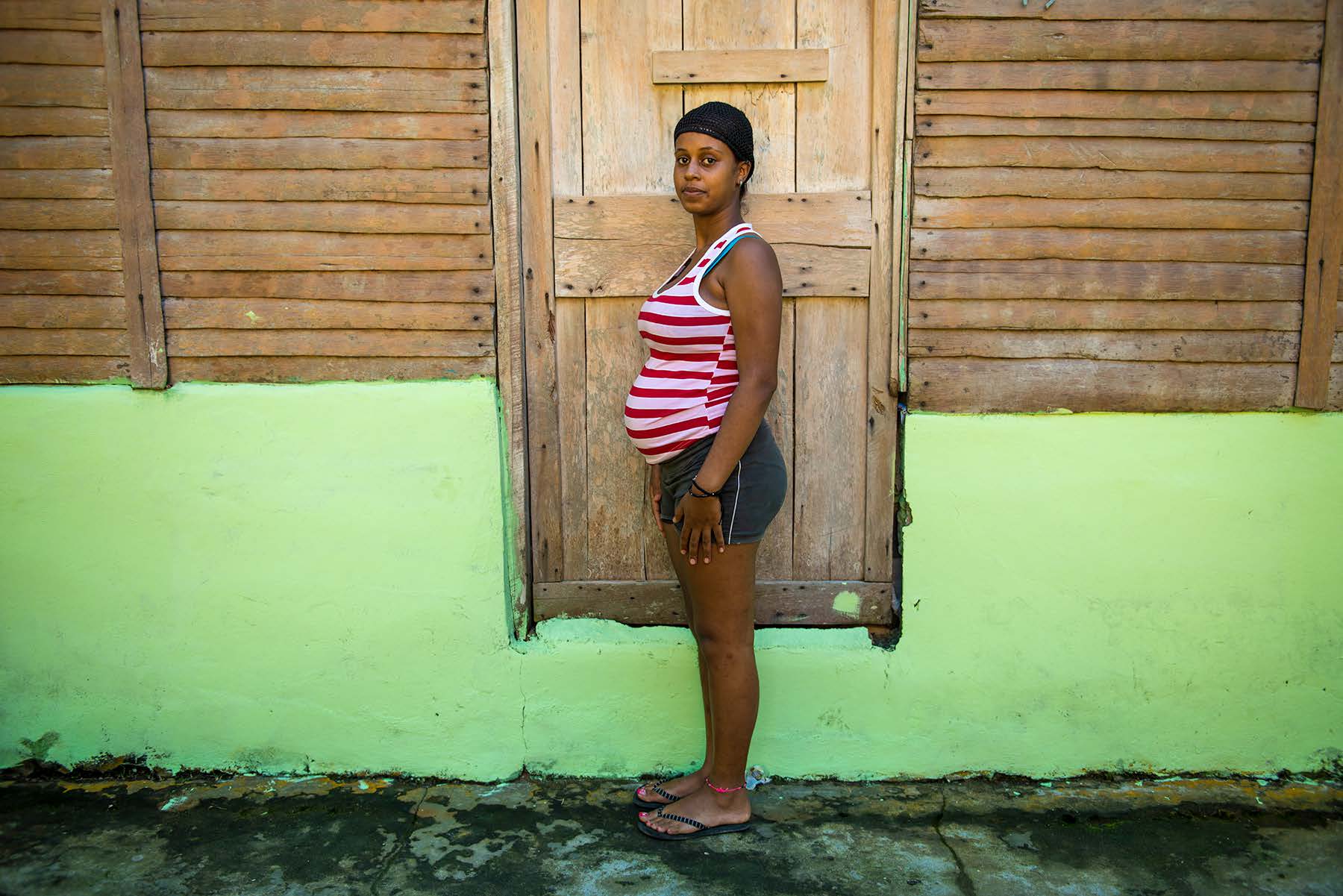(Photographs by Jennifer Gonzalez)
Four months pregnant with the child of a 73-year-old man, Yesenia, 16, prepares lunch for her son Jayson.
As she prepares a recently killed chicken in her family's outdoor shed, her 2-year-old, wearing nothing but a T-shirt, runs among their dozens of roosters, playing with a blue toy car.
It is noon and once Jayson is fed, she will bathe him. This has become her everyday life since leaving school after her first pregnancy.
Although teen mothers' spouses are commonly older in the mountainous region of San Cristobal, Dominican Republic, known as Jamey, Yesenia's case is drastic. Her partner Vilo, who she believes is 32 years of age, is really 73, about the same age as her own father.
"I wish he could be younger," she said of Vilo, who has at least 12 children with other women in the village. "I have to love him because he is my baby's father."
As the elderly man approaches her family's home—an unpainted wooden structure roofed with decaying tin—Yesenia becomes quiet. Her smile turns into a distraught expression, as she slumps over her chair and lays her cheekbones on the palm of her hands. Yesenia, who declined to talk about Jayson's father, appears sorrowful as Vilo hands her child a cookie.
Like most teens in the village, Yesenia was never taught about sex at home or in school.
"Before having Jayson, I did not know anything about sex," said Yesenia, who speaks with a hushed voice. "My mom used to tell me to not have sex in order to not become pregnant."
Juan Toledo Encarnacion, director of the Victoriano Ceballos Diaz Elementary School in Jamey, said neither the elementary or high school teaches sexual education.
"We don't have a teacher [qualified] to handle that subject," said Encarnacion, who has been the director for 30 years. "But we give them advice about waiting for the correct time to have babies and getting married."
Encarnacion said in the school of 250 students, about 10 girls drop out each year because of pregnancy. He said aside from the lack of education, teenage pregnancy is a generational issue.
"Their parents never went to school.… Once they finish the fourth or fifth grade, they get pregnant," he said. "What I've seen is that some girls become pregnant and just quit school."
This is the case for Yesenia, who only completed the fourth grade. When asked to sign our release form, she scripted a crooked "x" because she cannot write her own name.
Although never taught about sex, Yesenia said her mother advised her to get birth control from Clinica Rural el Jamey, a clinic less than a mile from her home.
"I never went, therefore I had Jayson," she said. "I should have paid attention to the doctors' and nurses' advice about getting the birth control pills. Now I realize I should have waited to grow up a little bit more to have Jayson and the other baby."
Elisa Doñe Frias, 43, who has been a nurse at the clinic for four years, said while they offer four types of contraceptives, teens don't know how to use them.
She said teens don't get contraceptives because they're scared their parents will find out.
"What is happening here is young girls fear us and don't ask about contraceptives," said Frias, who thinks parents should educate their kids about sex at the age of 9. "The families need to learn too, because teens aren't allowed to have contraceptives in the home."
But it is too late for Yesenia, who is expecting her second child within five months. She said she will teach her children about sex someday, although the advice she'll give is the same she received.
"Do not have children so young," she will tell them, she said.
Still, Yesenia is optimistic and hopes her children study medicine. Although she lives with eight family members in a two-bedroom shack, there is room for one more.
"I can take care of my two kids, with God's help," she said. "In the future, my kids will be the ones helping me."

























